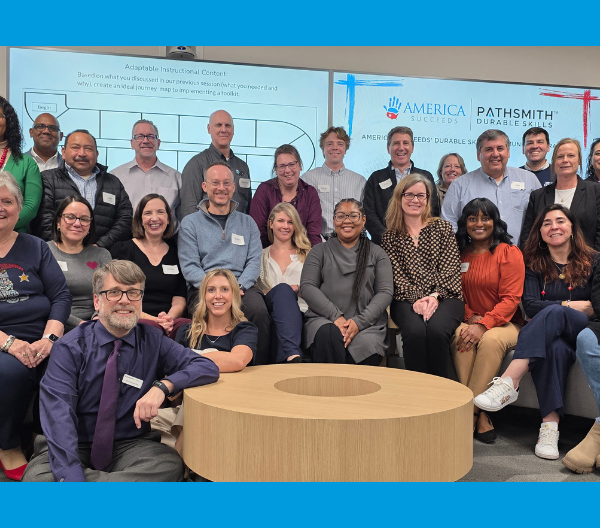As technical skills are advancing rapidly in the modern workforce, there is a set of Durable (non-technical) Skills that last a lifetime and provide a substantial advantage for companies with workers and employers who are committed to developing them. The demand for Durable Skills in the workforce has never been higher. Based on an analysis done in 2021 by America Succeeds in partnership with Lightcast, we found that among 80 million job postings in 2020-2021, seven of the ten most requested skills are Durable Skills. Furthermore, a recent report by Adecco found that 92% of employers think that workers aren’t as skilled as they need to be to succeed in their roles.
Fortunately, organizations like Skillsline are ahead of the curve and have identified Durable Skill development as an effective solution to address the skills gap that is creating hardship for employers around the nation. Through its online delivery platform, Skillsline provides short and engaging micro lessons geared towards cultivating Durable Skills that help bridge the gap between what learners are being taught in educational institutions and the skills employers are demanding.

In her doctoral dissertation for Johns Hopkins University, Dr. Ana Greif, CEO of JobPath concluded that addressing the skills gap is possible, as long as employers focus on employee needs and invest in training. To conduct the research, Dr. Ana Grief implemented the Skillsline platform and its programs across a 10-week period at an aerospace and defense manufacturer to help technicians develop their Durable Skills. She collected qualitative and quantitative data throughout the study to analyze the efficacy of Skillsline’s platform.
The results were remarkable. The Skillsline platform significantly improved participants’ Durable Skills and workplace behavior in ten weeks. These findings dispel more than one misconception about the role and possibility of Durable Skills development in strengthening our workforce. First and foremost, the results indefinitely display the teachability of Durable Skills and prove that these skills can be acquired and developed quickly through intentional methods. Second, the study shows that these skills are vital in labor-intensive industries and trade jobs, highlighting the adaptability of these skills across types of professions. Finally, the development of these skills benefits all stakeholders within the workforce, and intentional investment in training these skills leads to an improved bottom line for employers.
To learn more about the research done by Dr. Ana Greif on the Skillsline platform and the work Skillsline is doing to elevate Durable Skills within the workforce, read here.




